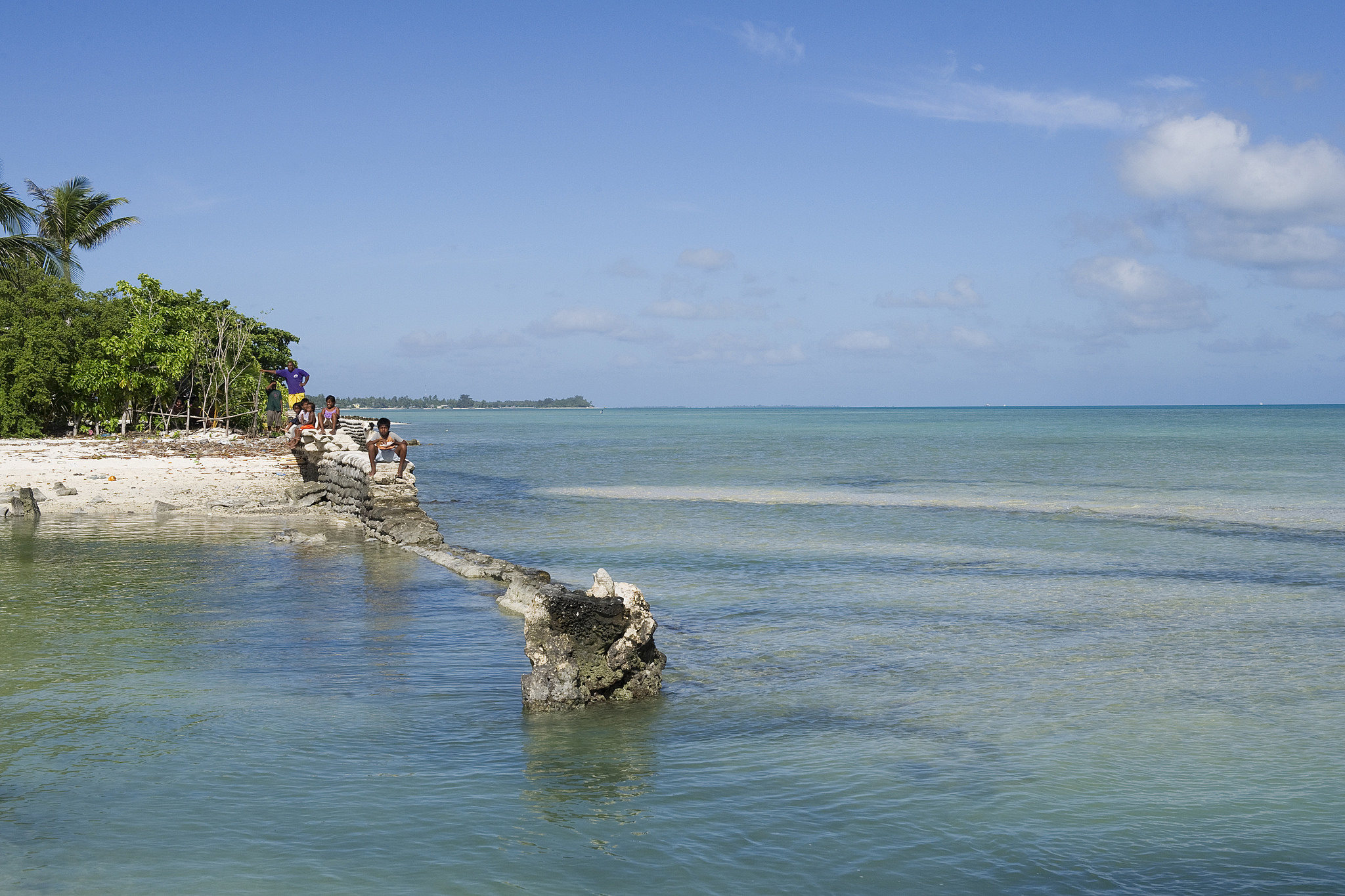
William Marks' documentary will document the sinking Pacific nation.
"Most people think climate change is a far-off megalith that does not affect them, and that they will not experience in their lifetime. The people of Kiribati are losing their entire nation now."
William Marks
A Gates Cambridge Scholar is about to start making a film about the proud but drowning nation of Kiribati in the Pacific Ocean.
William Marks [2013] and film-maker Micah Baskir set off at the end of July to begin filming on their documentary Rising Tides: The Last Generations of Kiribati.
Kiribati is a nation that is slowly slipping under the waves. Estimates differ about how long it will take to be completely covered by the sea, but it is thought that sea water will infiltrate all the fresh water in the next five to 10 years, making the country uninhabitable by humans. Kiribati will become the first whole nation to "sink" as a result of climate change. Kiribati's President Anote Tong aims to migrate the entire nation off the islands to specially purchased and designated land in Fiji, a move with huge repercussions for the I-Kiribati culture.
The aim of the film is to document and preserve the culture of the islands and to share the stories of the last people to live on Kiribati. "Most people think climate change is a far-off megalith that does not affect them, and that they will not experience in their lifetime. The people of Kiribati are losing their entire nation now," says William.
He has been fascinated by the Pacific Ocean islands since he was a small child. While he was an undergraduate at Harvard the president of Kiribati delivered a talk. "He knew that his nation had no hope. It was going under water. It was, as he said, "going to belong to the fish". He was talking about climate change and how it was impacting his people," he says. William began thinking how he could learn more about Kiribati and help its people by presenting "the stories of the last generation".
He told many of his friends of his plans, but it was not until he contacted Micah, an award-winning film-maker from Los Angeles, that things started to take off. Initially he wanted to get some advice about how to make a film. Micah said he would teach William, who is studying for a PhD in Chemical Engineering and focuses on developing a device to deliver medicines to breastfeeding infants. Eventually, Micah suggested they make the film together and they started planning together. As both have been busy with other projects and studies over the years – Micah is a producer on a late night programme on US tv as well as making his own documentaries – it has taken some time to get to the point they are at now. They leave for Kiribati on 25th July.
William says they will be filming and interviewing a broad range of people from Kiribati spanning every generation and including the President, and they hope to get to all 24 of the inhabited islands in Kiribati during the filming process. There are 33 islands in total and three are already under water. Planning the logistics of the trip has taken around two years. Kiribati lies at the intersection of the international date line and the equator. William says it will take them three days to get from Los Angeles to Kiribati. They fly first to Fiji and then to Tarawa, the capital of Kiribati, but there is only one flight a week. "People live on the air strip and move their homes when a plane comes," says William. They will then travel by boat or small plane to the various islands, including Kiritimati (Christmas Island) which is the furthest east of the very widely spread islands and has an airport.
The two film makers have made a trailer, using equipment from the University of Cambridge's anthropology department and footage from Kiribati shared by friends. They used the trailer to raise money for the film via Kickstarter. So far they have raised $14K. If they don't meet their target of $17K by July 24th they won't get any of the money, but they are determined that they will go ahead with the filming anyway. The film is already generating interest.
The film makers hope to have the first draft of the film ready for November and to follow up with a trip back to Kiribati in December when the country's next elections are held. The film will be distributed as widely as possible, initially via film festivals.
William says: "We are trying to put a face to climate change by presenting 102,000 people for whom climate change is very real and to whom it is happening right now. It doesn't matter what reason you want to give for climate change. The fact is that it is happening and real people are about to lose their entire nation and a culture which is thousands of years old. These are people who have weathered the ocean for thousands of years as well as colonisation, the tuna trade and the battles of World War II and their time is up now."
More information: www.risingtidesdoc.com
*Picture credit: UN Photo/Eskinder Debebe












